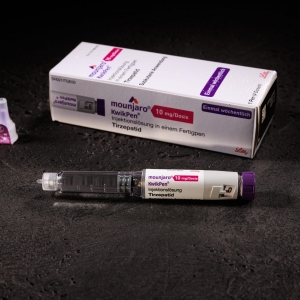In today’s world, small businesses that want to grow can’t ignore sustainability. More customers, investors, and regulators expect environmentally conscious practices. That’s where green financing comes in—funding designed to support eco-friendly projects. At the same time, merchant cash advances (MCAs) continue to offer rapid access to capital. In the blog “Green Financing and the Future of MCAs: Can Sustainable Funding Power Small Business Growth?”, Capital Express explores how these two trends might align. Let’s take that conversation further and see how this combination could reshape financing for small businesses.
What Green Financing Really Means
Green financing covers loans, grants, or incentives that directly support sustainable business practices—like energy efficiency upgrades, renewable energy installations, or waste-reduction initiatives. Rather than merely being a “nice to have,” it’s becoming a competitive advantage.
Small businesses often believe green projects require long timelines or large capital. But that's changing. Even smaller eco-friendly initiatives, like upgrading to LED lighting or installing better HVAC controls, can pay back over time—and green financing helps bridge the upfront cost gap.
Merchant Cash Advances: Speed Over Everything
MCAs differ from traditional loans. With an MCA, a provider gives your business a lump sum in exchange for a share of your future sales. Because of that, your repayment fluctuates with your revenue. If you have a slower week, your payment drops accordingly.
This flexibility is especially useful for businesses that can’t qualify for unsecured small business loans or for those needing capital fast. And because MCA approval often doesn’t hinge on strong credit, it opens doors for companies that struggle with traditional underwriting.
Why Merge Green Financing and MCAs?
At first glance, green financing and MCAs seem like odd partners: one is often thought of as long–term, structured, and tied to rigorous metrics; the other is fast, flexible, and sometimes more expensive. However, merging them could unlock unique opportunities.
Imagine a business that needs to replace inefficient equipment to reduce energy costs. Waiting months to secure a green loan might delay the upgrade and continue bleeding excessive utility bills. But if that business could obtain near same day business funding through an MCA, they could implement sustainable changes earlier—and start saving sooner.
So, by marrying speed (from MCAs) with the mission (from green financing), small businesses can take action faster.
Benefits & Drawbacks of “Eco-MCAs”
Let’s walk through both sides of the coin.
Benefits
- Accessibility: Many small businesses, especially startups, don’t have the credit history needed for conventional green loans. An MCA shifts focus to sales and revenue instead.
- Speed: Green loan applications can drag for weeks. An MCA can offer funding much faster.
- Brand value: Investing in sustainability sends a message to customers, partners, and employees that your business prioritizes the planet.
- Pay-as-you-sell: Because repayments scale with your revenue, you avoid the risk of fixed monthly payments when sales dip.
Drawbacks
- Higher cost: MCAs usually carry higher fees or factor rates than long-term loans. This can erode some of the savings you planned from going green.
- Volatile repayments: If your sales vary a lot, daily or weekly payments may strain your cash flow.
- Limited scale: Large green projects—like installing solar systems—often require more capital than an MCA can practically support.
Because of these trade-offs, it’s wise to run numbers (using a loan calculator or Merchant Cash Advance Calculator) before committing.
How to Tell If It Makes Sense for Your Business
Here’s when a green-MCA combo might be smart:
- You have consistent, predictable revenue.
- You need capital quickly, and waiting for traditional green financing isn’t an option.
- Your project has a relatively modest capital requirement (so the cost of the MCA doesn’t outweigh its benefit).
If, instead, your revenue is volatile or your project is huge in scale, you might lean toward conventional green loans or grants.
Also, this path is especially useful for a merchant cash advance for startups—young businesses aiming to adopt sustainable practices early.
Practical Steps to Prepare
If you’re intrigued by the idea of blending green financing with MCAs, here’s how to get ready:
- Audit your baseline finances: Know your average revenue, costs, and cash flow trends.
- Outline your green project: Be clear on scope, cost, and expected savings.
- Use calculators: Estimate repayment obligations with a Merchant Cash Advance Calculator or a standard loan calculator.
- Compare alternatives: Don’t ignore options like grants, leasing, or unsecured small business loans.
- Show sustainability alignment: Present how your project benefits both your bottom line and the environment.
For more on how to prepare for revenue-based funding, see this guide: How to Prepare Your Business for a Revenue Based Financing Application.
The Road Ahead: Evolving MCAs in a Green Economy
Looking forward, it’s plausible that MCA providers will design special programs for green projects. For example, they might offer reduced fees for eco-friendly upgrades or reward businesses that hit emission reduction targets.
This shift could make sustainability more approachable for small businesses. Instead of seeing green upgrades as a cost center, owners may start viewing them as steps toward growth—backed by funding that moves at their speed.
In short, the future of MCAs in a green economy looks promising. Combining “small business merchant cash advance” solutions with a sustainable mindset may redefine how small firms invest in both profit and purpose.
Conclusion
“Green Financing and the Future of MCAs: Can Sustainable Funding Power Small Business Growth?” opens an essential conversation. It challenges the notion that speed and sustainability are incompatible.
For small businesses aiming to grow responsibly, the fusion of green financing and MCAs offers a compelling path. While risk and costs demand careful planning, the payoff is more than financial—it’s about contributing to a healthier planet while building a resilient business.
If you're curious to see whether this hybrid approach fits your situation, reach out to Capital Express or explore their deeper resources and calculators to make an informed choice.








